AP United States Government and Politics covers the foundations of American democracy, political ideologies, branches of government, civil liberties, and landmark Supreme Court cases, providing a comprehensive understanding of U.S. government structure, processes, and key political concepts.
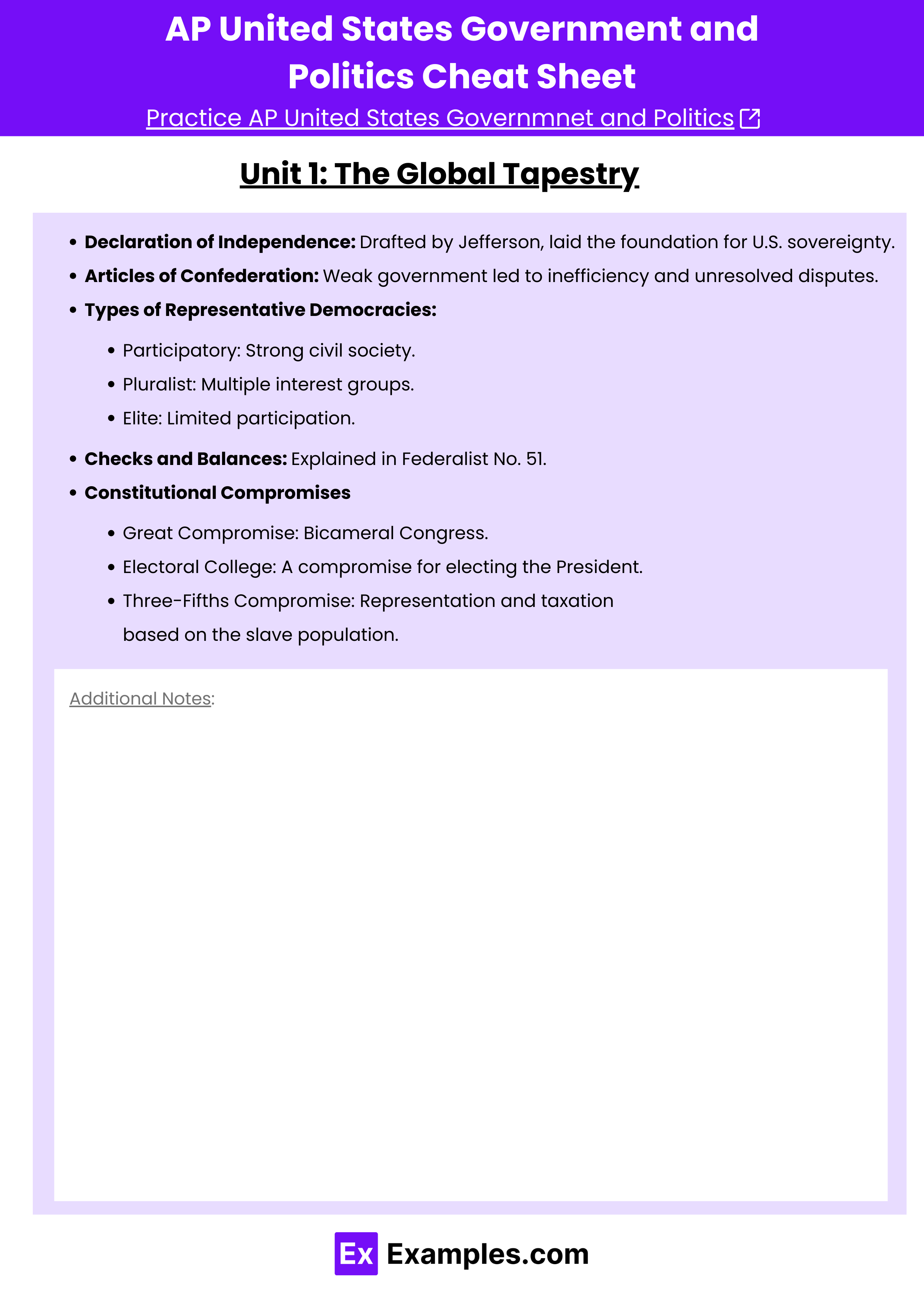
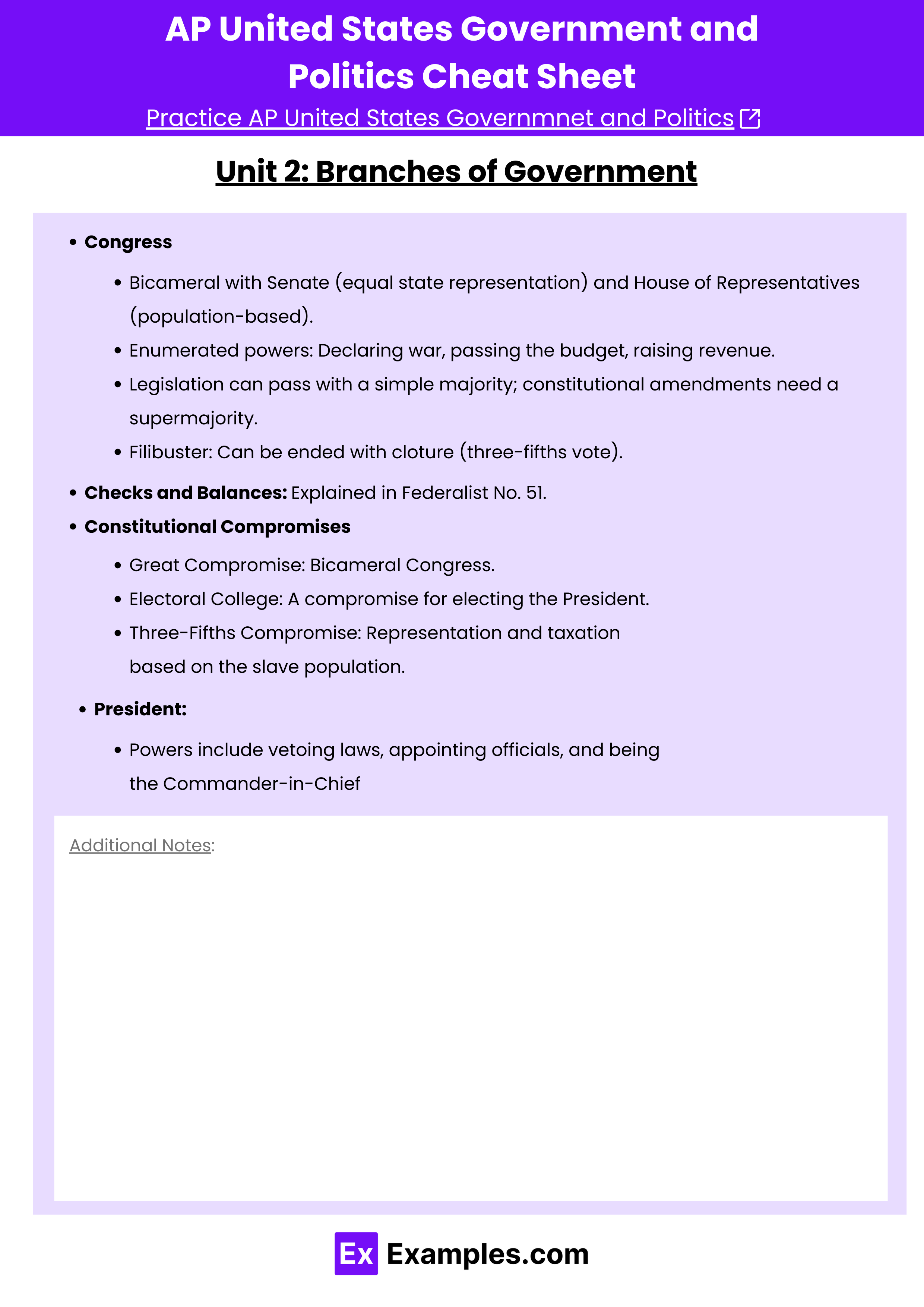
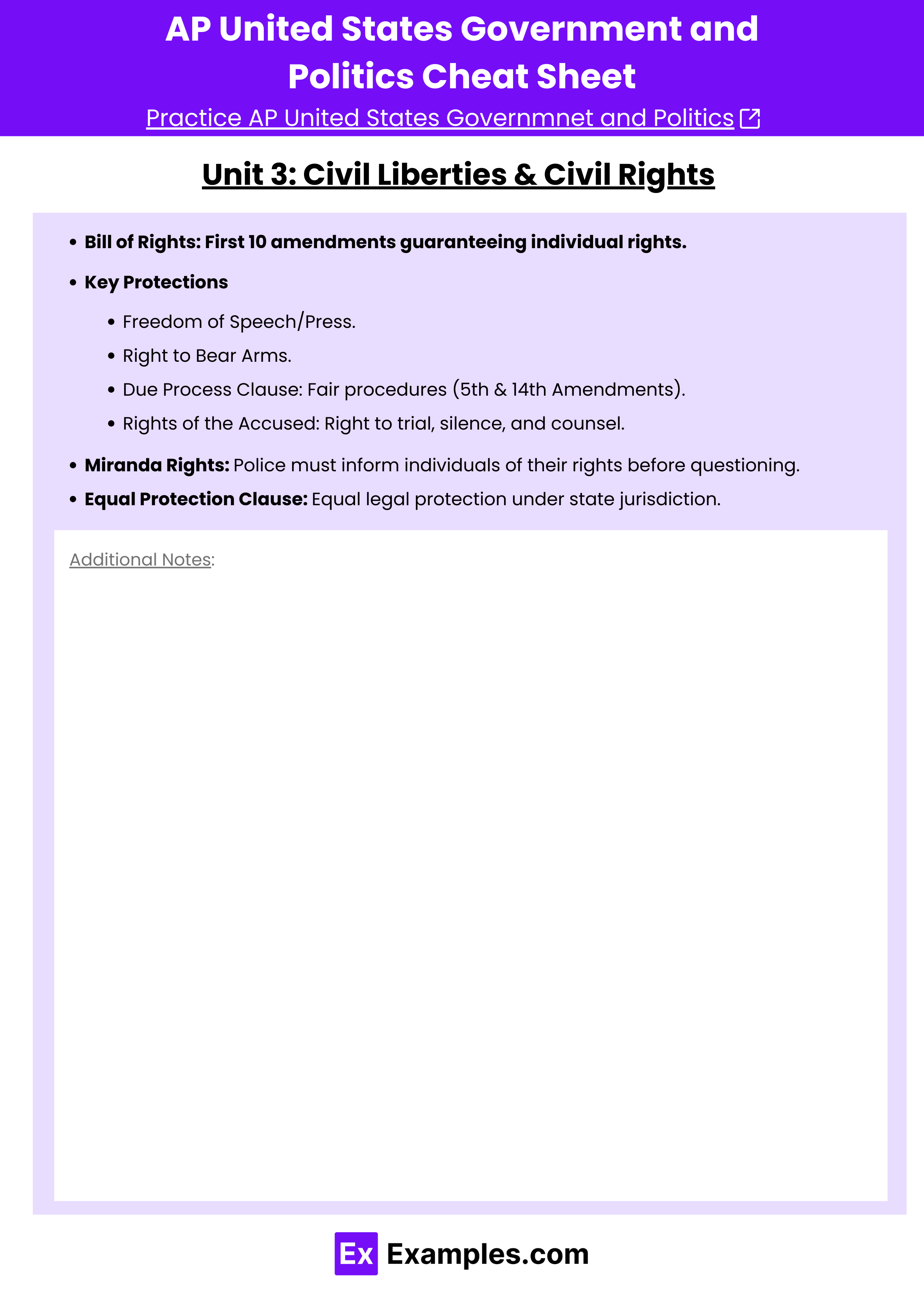
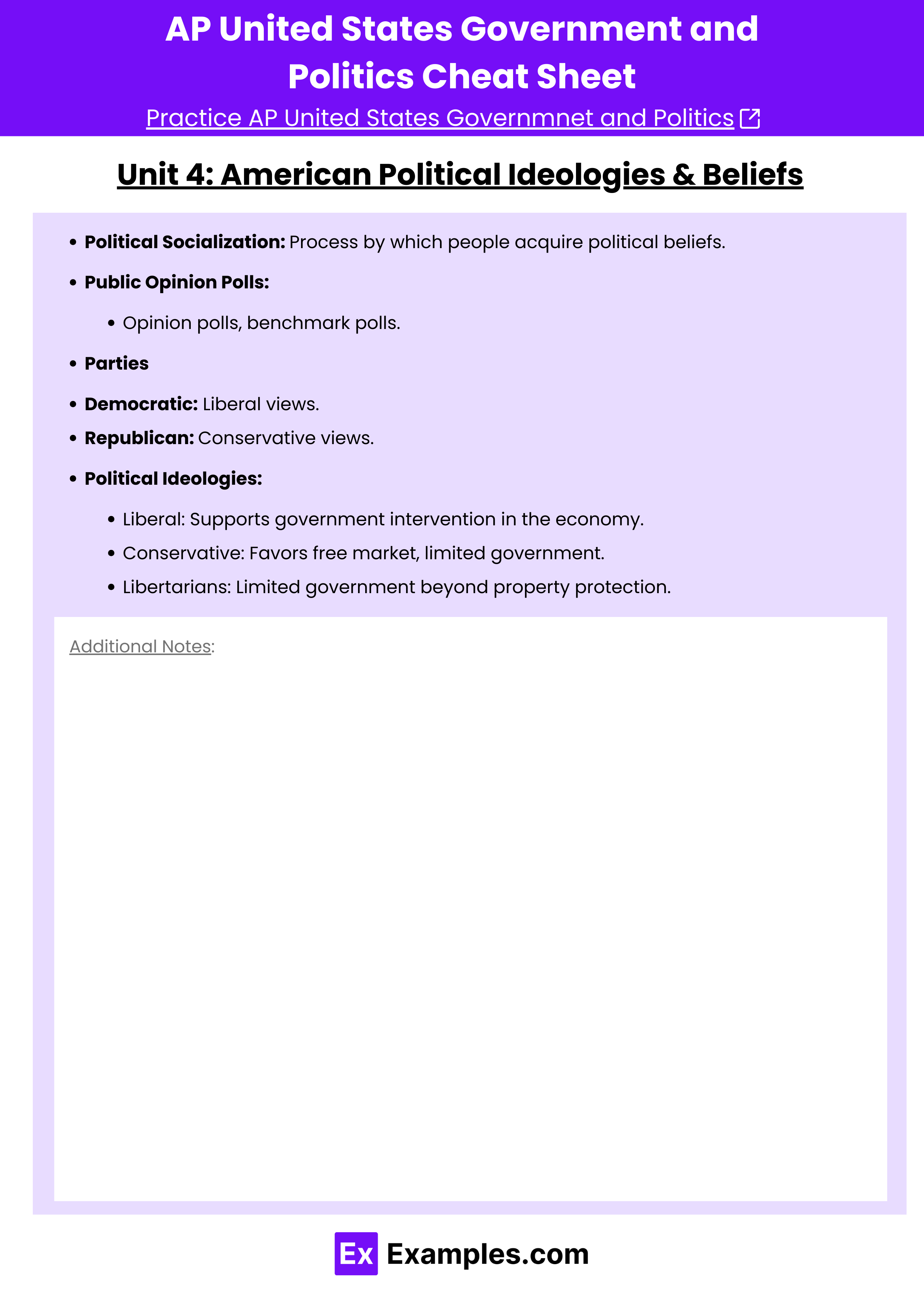
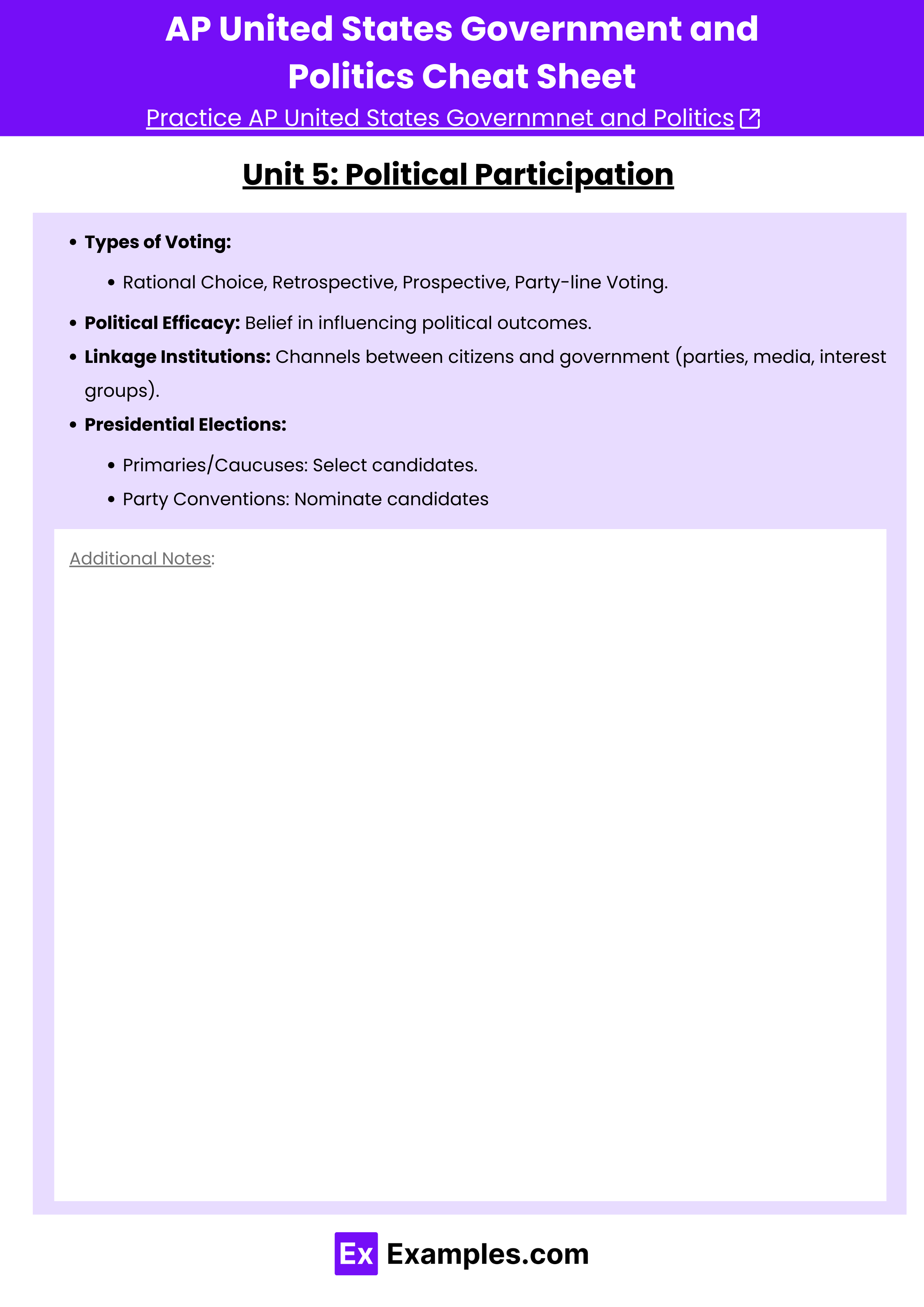
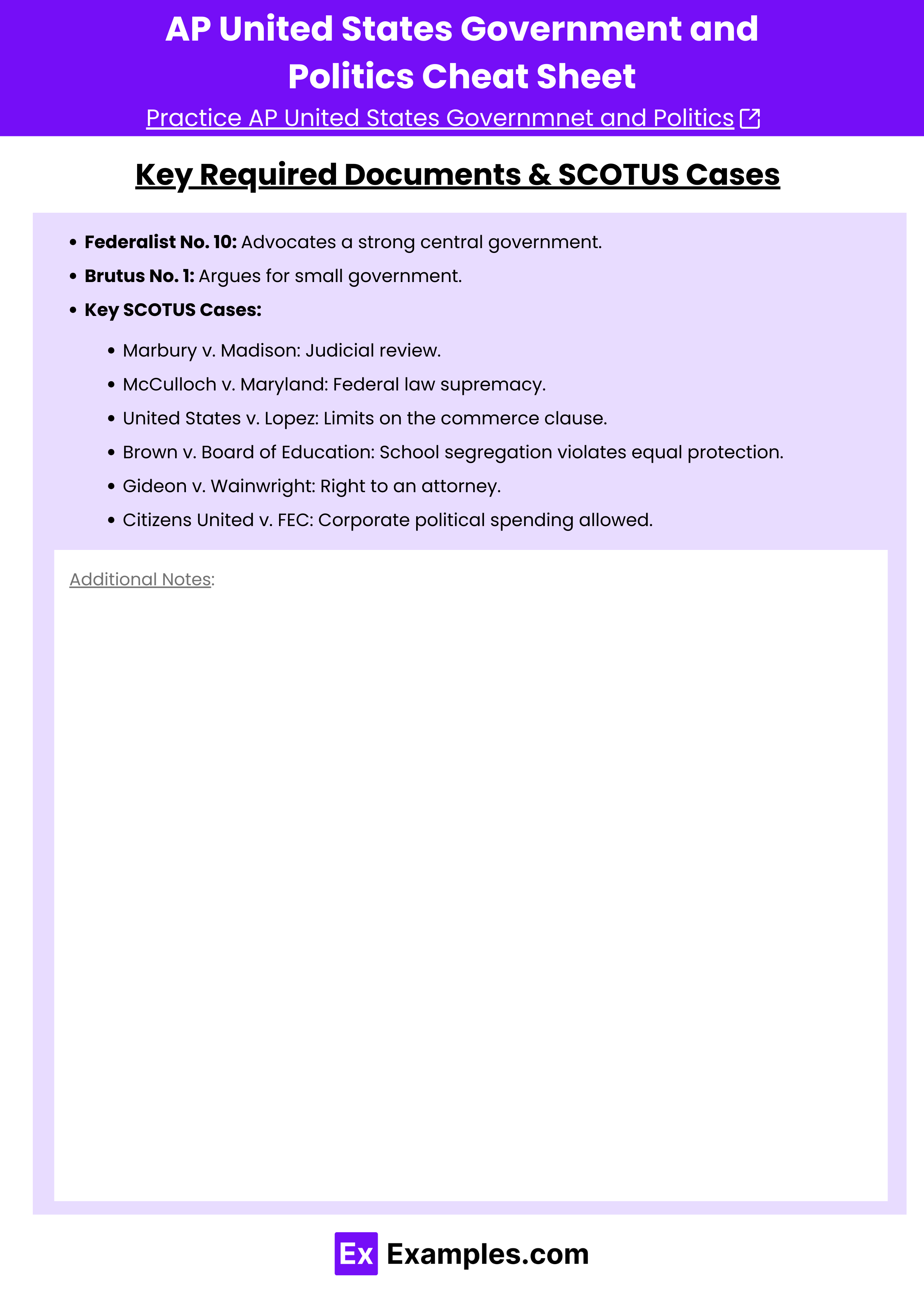
Download AP United States Government and Politics Cheat Sheet – Pdf
Unit 1: Foundations of American Democracy
- Declaration of Independence: Drafted by Jefferson, laid the foundation for U.S. sovereignty.
- Articles of Confederation: Weak government led to inefficiency and unresolved disputes.
- Types of Representative Democracies:
- Participatory: Strong civil society.
- Pluralist: Multiple interest groups.
- Elite: Limited participation.
- Checks and Balances: Explained in Federalist No. 51.
- Constitutional Compromises:
- Great Compromise: Bicameral Congress.
- Electoral College: A compromise for electing the President.
- Three-Fifths Compromise: Representation and taxation based on the slave population.
Unit 2: Branches of Government
- Congress:
- Bicameral with Senate (equal state representation) and House of Representatives (population-based).
- Enumerated powers: Declaring war, passing the budget, raising revenue.
- Legislation can pass with a simple majority; constitutional amendments need a supermajority.
- Filibuster: Can be ended with cloture (three-fifths vote).
- President:
- Powers include vetoing laws, appointing officials, and being the Commander-in-Chief.
- Judicial Branch:
- Judicial Review (established by Marbury v. Madison) allows courts to review laws.
- Supreme Court (SCOTUS) is the highest court.
Unit 3: Civil Liberties & Civil Rights
- Bill of Rights: First 10 amendments guaranteeing individual rights.
- Key Protections:
- Freedom of Speech/Press.
- Right to Bear Arms.
- Due Process Clause: Fair procedures (5th & 14th Amendments).
- Rights of the Accused: Right to trial, silence, and counsel.
- Miranda Rights: Police must inform individuals of their rights before questioning.
- Equal Protection Clause: Equal legal protection under state jurisdiction.
Unit 4: American Political Ideologies & Beliefs
- Political Socialization: Process by which people acquire political beliefs.
- Public Opinion Polls:
- Opinion polls, benchmark polls.
- Parties:
- Democratic: Liberal views.
- Republican: Conservative views.
- Political Ideologies:
- Liberal: Supports government intervention in the economy.
- Conservative: Favors free market, limited government.
- Libertarians: Limited government beyond property protection.
Unit 5: Political Participation
- Types of Voting:
- Rational Choice, Retrospective, Prospective, Party-line Voting.
- Political Efficacy: Belief in influencing political outcomes.
- Linkage Institutions: Channels between citizens and government (parties, media, interest groups).
- Presidential Elections:
- Primaries/Caucuses: Select candidates.
- Party Conventions: Nominate candidates.
Key Required Documents & SCOTUS Cases
- Federalist No. 10: Advocates a strong central government.
- Brutus No. 1: Argues for small government.
- Key SCOTUS Cases:
- Marbury v. Madison: Judicial review.
- McCulloch v. Maryland: Federal law supremacy.
- United States v. Lopez: Limits on the commerce clause.
- Brown v. Board of Education: School segregation violates equal protection.
- Gideon v. Wainwright: Right to an attorney.
- Citizens United v. FEC: Corporate political spending allowed.

